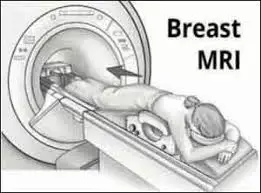- Home
- Medical news & Guidelines
- Anesthesiology
- Cardiology and CTVS
- Critical Care
- Dentistry
- Dermatology
- Diabetes and Endocrinology
- ENT
- Gastroenterology
- Medicine
- Nephrology
- Neurology
- Obstretics-Gynaecology
- Oncology
- Ophthalmology
- Orthopaedics
- Pediatrics-Neonatology
- Psychiatry
- Pulmonology
- Radiology
- Surgery
- Urology
- Laboratory Medicine
- Diet
- Nursing
- Paramedical
- Physiotherapy
- Health news
- Fact Check
- Bone Health Fact Check
- Brain Health Fact Check
- Cancer Related Fact Check
- Child Care Fact Check
- Dental and oral health fact check
- Diabetes and metabolic health fact check
- Diet and Nutrition Fact Check
- Eye and ENT Care Fact Check
- Fitness fact check
- Gut health fact check
- Heart health fact check
- Kidney health fact check
- Medical education fact check
- Men's health fact check
- Respiratory fact check
- Skin and hair care fact check
- Vaccine and Immunization fact check
- Women's health fact check
- AYUSH
- State News
- Andaman and Nicobar Islands
- Andhra Pradesh
- Arunachal Pradesh
- Assam
- Bihar
- Chandigarh
- Chattisgarh
- Dadra and Nagar Haveli
- Daman and Diu
- Delhi
- Goa
- Gujarat
- Haryana
- Himachal Pradesh
- Jammu & Kashmir
- Jharkhand
- Karnataka
- Kerala
- Ladakh
- Lakshadweep
- Madhya Pradesh
- Maharashtra
- Manipur
- Meghalaya
- Mizoram
- Nagaland
- Odisha
- Puducherry
- Punjab
- Rajasthan
- Sikkim
- Tamil Nadu
- Telangana
- Tripura
- Uttar Pradesh
- Uttrakhand
- West Bengal
- Medical Education
- Industry
Breast MRI can predict success of preop chemotherapy in inflammatory breast cancer patients: Study

Boston, MA: The success of preoperative chemotherapy can be determined by performing baseline breast MRI scans in women with inflammatory breast cancer (IBC), a recent study has revealed.
"Baseline breast MRI illustrates skin thickening and enhancement in inflammatory breast cancer (IBC), patients, with a statistically significant reduction in skin thickness following successful preoperative systemic therapy (PST)," the researchers wrote. "Patients achieving a complete parenchymal response to PST may go ahead with mastectomy with low local-regional recurrence (LRR) rates."
The findings, published in the journal Academic Radiology, are important for women suffering from this rare and aggressive cancer, as well as for physicians treating them.
Preoperative systemic therapy followed by mastectomy and radiation improves survival in IBC patients. Residual disease within the skin following PST is known to adversely affect surgical outcomes and the risk of LRR. Eren Yeh, Department of Radiology, Brigham and Women's Hospital, Boston, MA, and colleagues, therefore, aimed to assess the magnetic resonance imaging (MRI) breast skin changes post-PST with pathologic response and its impact on surgical resectability.
For this purpose, Dr. Yeh and the team retrospectively reviewed 152 baseline and post-PST breast MRIs of 76 patients with IBC. Skin thickness, qualitative enhancement, and kinetic analysis were correlated with pathologic response in the skin at mastectomy using the ACR-BIRADS MRI lexicon.
The study yielded the following findings:
· Baseline MRI showed skin thickening in all 76 patients, 75/76 (99%) showed skin enhancement, 54/75 (72%) had medium/fast initial kinetics, usually with persistent delayed kinetics in 49/54 (91%).
· Following PST, 66/76 (87%) had residual skin thickening with 64/76 (84%) showing a decrease; 33/76 (43%) had persistent enhancement.
· The median thickness post-PST was 4.7 mm with residual tumor in the skin, and 3.0 mm without residual tumor.
· Regardless of pathologic response, the majority of patients had persistent skin thickening on MRI following PST (100% [14/14] with residual tumor and 84% [52/62] without residual tumor).
· There was no association between post-PST skin thickness on breast MRI and rate of LRR.
The researchers concluded, "Breast MRI is a useful adjunct modality to help clinicians establish the diagnosis of inflammatory breast cancer by illustrating skin involvement as thickening and enhancement. "Additionally, breast MRI is a valuable post-preoperative systemic therapy assessment tool to confirm the degree of imaging response in the affected breast and nodal groups."
Reference:
The study titled, "MRI Changes in Breast Skin Following Preoperative Therapy for Patients with Inflammatory Breast Cancer," is published in the journal Academic Radiology.
DOI: https://www.academicradiology.org/article/S1076-6332(21)00356-1/fulltext
Dr Kamal Kant Kohli-MBBS, DTCD- a chest specialist with more than 30 years of practice and a flair for writing clinical articles, Dr Kamal Kant Kohli joined Medical Dialogues as a Chief Editor of Medical News. Besides writing articles, as an editor, he proofreads and verifies all the medical content published on Medical Dialogues including those coming from journals, studies,medical conferences,guidelines etc. Email: drkohli@medicaldialogues.in. Contact no. 011-43720751


